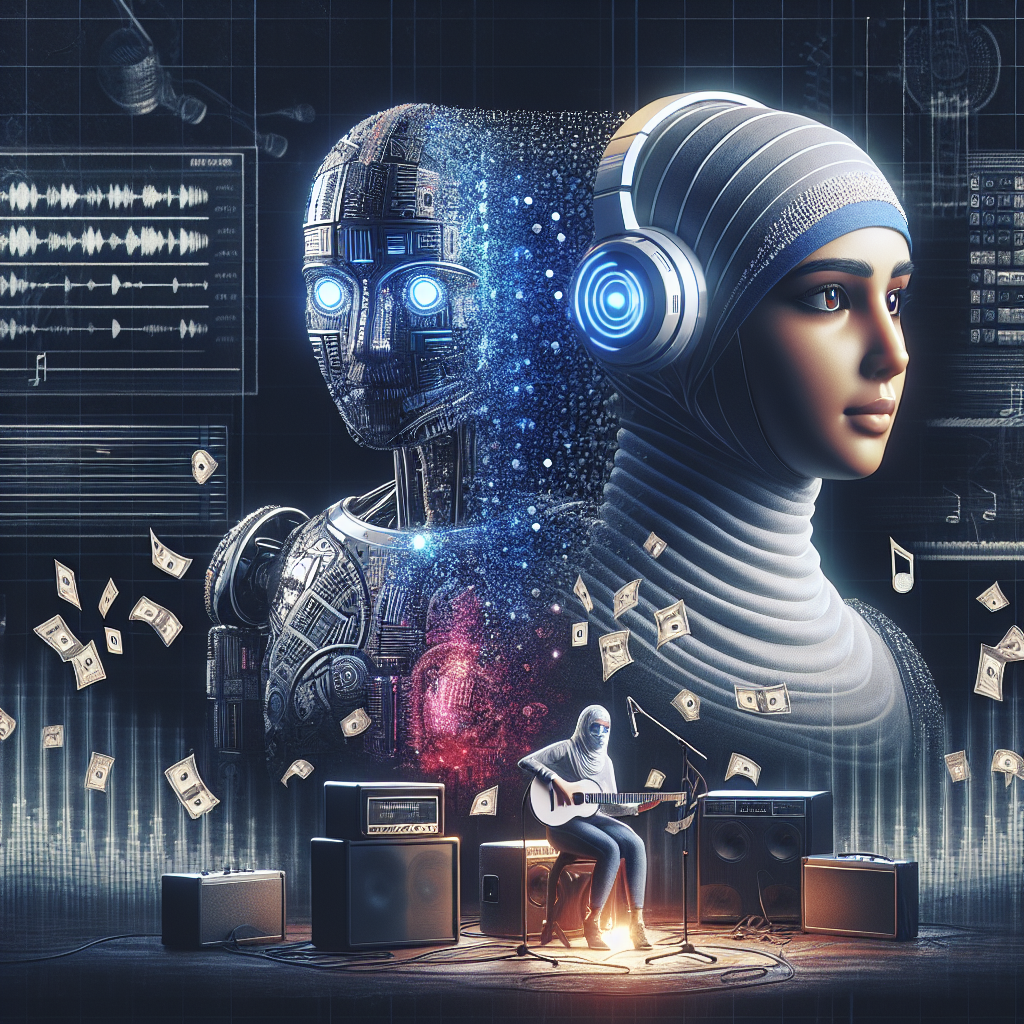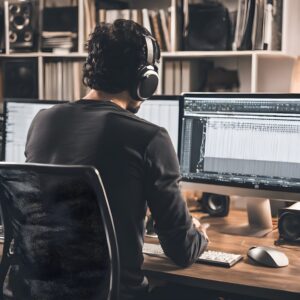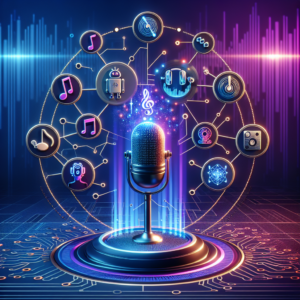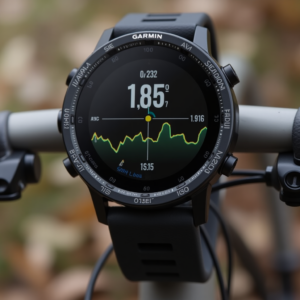
The Rise of AI in the Music Industry
The music industry has always been at the forefront of embracing new technologies—from the introduction of the phonograph to the digital revolution brought on by streaming platforms. However, a new technological force is rapidly transforming the landscape: artificial intelligence (AI). A recent global study has revealed that AI could lead to a loss of nearly 25% of income for workers in the music industry over the next four years. As AI continues to evolve, its impact on musicians, producers, engineers, and other professionals is becoming increasingly apparent.
This article explores the key findings of the study, the potential consequences of AI on the music industry workforce, and how professionals can adapt to these changes. We’ll delve into AI’s growing influence on music production, distribution, and how new roles and opportunities might emerge in this shifting landscape.
The Impact of AI on Music Creation and Production
AI’s role in music production has become undeniable, with the advent of generative AI systems that can compose music, mix tracks, and even produce full-length albums. In the past, these tasks required a team of highly skilled human musicians, composers, producers, and sound engineers. Today, AI-powered software can complete much of this work autonomously, changing the dynamics of the music production process.
AI music generators, such as OpenAI’s MuseNet and Google’s Magenta, can compose music across a variety of genres, including pop, jazz, and classical, and even mimic the styles of famous musicians. These systems use deep learning and neural networks to analyze vast amounts of data, enabling them to generate new compositions that are eerily similar to the work of human musicians.
The Role of AI in Music Production
In addition to composition, AI tools can assist in mixing and mastering tracks, reducing the need for human sound engineers. Software like LANDR and iZotope’s Ozone use machine learning to analyze and optimize audio, mastering tracks with precision and speed. These tools can automate tedious tasks such as equalizing sound levels, noise reduction, and adding effects, making it easier and faster to produce high-quality music.
For producers, AI can speed up workflows by suggesting arrangements, analyzing trends in listener preferences, and even generating new instrumental or vocal parts. AI-generated music can also be tailored to specific genres or audience preferences, increasing its marketability.
Job Loss and the Changing Music Industry Workforce
Despite the advancements AI brings to the table, it is also causing significant concerns among workers in the music industry. The recent global study suggests that the rapid adoption of AI will result in a 25% income loss for music sector workers by 2028. This percentage is based on the potential for automation to replace several traditional roles in the industry.
Impact on Musicians and Composers
AI’s ability to generate original compositions presents a major challenge for musicians and composers. In the past, these professionals relied on their creativity to craft songs, symphonies, or soundtracks. However, AI can now produce entire tracks in a matter of seconds, often mimicking the sound of established artists and genres. This reduces the demand for human-created music, as AI-generated compositions become more prevalent in commercial use.
For example, some record labels and production companies may choose AI-created music for its cost-efficiency and the speed at which it can be produced. As a result, musicians who rely on their compositions as a primary source of income may struggle to maintain their livelihoods.
Sound Engineers and Music Producers
AI’s growing influence is also affecting sound engineers and music producers. These professionals traditionally manage the technical aspects of recording and producing music, ensuring that each track is polished and ready for release. However, AI-powered tools such as AI mixers and mastering software can now perform many of these tasks with a high degree of accuracy, potentially reducing the need for human technicians.
While these AI tools offer efficiency and cost-effectiveness, they also pose a threat to professionals who have spent years honing their craft. The music production process, once filled with human expertise and artistic vision, is now becoming more automated.
Session Musicians and Instrumentalists
Another group at risk of displacement are session musicians—those hired to play instruments on recording tracks. AI systems can generate lifelike instrument sounds, from the strumming of a guitar to the complexities of a full orchestral arrangement. These AI-generated sounds are becoming increasingly difficult to distinguish from those played by human musicians, and studios may choose AI-created music instead of hiring session musicians.
For instrumentalists who depend on session work, this is a concerning trend. As AI becomes more sophisticated, the demand for human musicians in the studio could decline, affecting their income and job prospects.
AI’s Impact on Music Distribution and Marketing
AI’s effects are not limited to music creation; they also extend to music distribution and marketing. Platforms such as Spotify and Apple Music already use AI algorithms to suggest songs and create personalized playlists for users. These algorithms analyze data on listener behavior and predict which songs are likely to be popular, guiding the platform’s recommendation engine.
As AI continues to evolve, its role in music curation and promotion will grow. Artists may find themselves competing with AI-generated tracks for attention on streaming platforms, which could lead to a further decline in revenue for musicians. Moreover, AI’s ability to analyze and predict consumer preferences could reduce the need for human marketers and music managers, as AI takes over the task of targeting the right audience for each release.
AI is also changing the way music is licensed. In the past, music licensing agents played a key role in negotiating deals for songs to be used in films, television, and advertisements. However, AI has the potential to automate much of this process by quickly scanning libraries and identifying the best fit for a specific project.
Opportunities for Innovation and New Roles in the AI-Driven Music Industry
While AI poses challenges for many traditional music industry roles, it also presents new opportunities for innovation and career paths. One of the key advantages of AI is its ability to enhance human creativity. Musicians and producers can use AI as a tool to generate new ideas, experiment with different sounds, and collaborate with virtual systems to push the boundaries of music.
AI and Music Collaboration
For musicians, AI can be a valuable collaborator. Instead of seeing AI as a replacement, artists can embrace it as a tool that enhances their creativity. For example, AI can generate chord progressions, melodies, and rhythmic patterns that musicians can then build upon and adapt to their unique style. This collaborative approach could lead to new genres and innovative music that combines human emotion and AI-generated sounds.
Emerging Roles in AI Music Tech
As AI becomes more integrated into the music industry, new roles are emerging that require specialized knowledge of both music and technology. For example, AI specialists who understand machine learning and how to design AI tools for music production will be in high demand. Similarly, data analysts who can analyze patterns in listener behavior and guide AI-driven marketing campaigns will play a critical role in the industry’s future.
Music-tech entrepreneurs may also find success by developing new AI-powered tools that help musicians create music more efficiently or provide unique ways for audiences to interact with music. These innovators will be instrumental in shaping the future of the music industry.
How to Prepare for the AI-Driven Future of Music
Given the rapid pace at which AI is transforming the music industry, it is crucial for music professionals to adapt and prepare for the future. Here are some strategies for staying relevant in an AI-driven landscape:
1. Embrace AI as a Tool, Not a Threat
Rather than resisting AI, music professionals can learn to incorporate AI tools into their workflows. Whether it’s using AI to compose music, assist in mixing, or generate new sounds, AI can be a valuable asset to enhance creativity. Musicians, producers, and engineers who embrace AI will have a competitive edge in the industry.
2. Develop Technical Skills in AI and Data Analysis
As AI continues to play a larger role in music, workers in the industry who possess technical skills will be in high demand. Music professionals who can code, understand machine learning, and analyze data will be well-positioned to take advantage of the opportunities AI brings. By acquiring these technical skills, professionals can ensure they remain valuable in an increasingly AI-driven world.
3. Focus on Human Creativity
While AI can replicate many tasks, it cannot replace the human touch—especially when it comes to creativity, intuition, and emotional connection. Musicians who focus on crafting unique and authentic experiences will continue to be in demand, as audiences value originality and personal expression in music.
The Future of Music in the Age of AI
AI’s potential to disrupt the music industry is clear, and workers in the sector must prepare for its impact. While many roles may be automated, new opportunities for innovation and collaboration with AI are also on the horizon. By embracing AI as a tool, developing technical skills, and focusing on the unique qualities that make human-created music special, music professionals can thrive in the changing landscape.
AI will not replace the human element of music but rather transform the way music is created, produced, and consumed. As the industry continues to evolve, those who adapt to the changing technological landscape will be the ones who lead the way into the future of music.
Visit our other website: https://synergypublish.com




